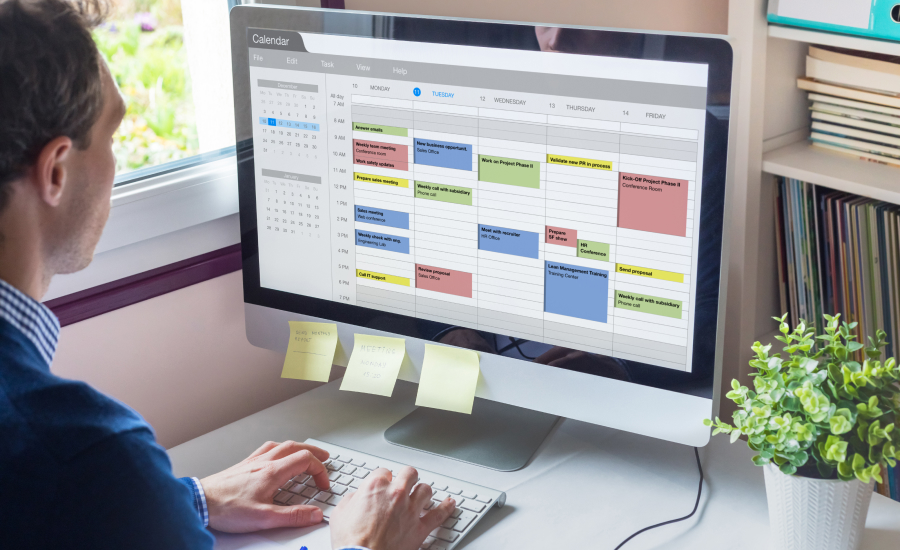Introduction
Prioritizing tasks is the process of sorting activities, responsibilities, and tasks according to their importance and urgency. It is essential to effectively manage time and resources and to achieve optimal efficiency in all aspects of life. Prioritizing tasks allows individuals to focus their energy on completing the most important tasks first while delegating lesser tasks when possible.
Why It Is Important to Prioritize Tasks for Maximum Efficiency

Prioritizing tasks is a critical part of efficiency and effectiveness. When tasks are identified and listed, a person can then discern which tasks are the most important and need to be completed first. By assigning tasks to different priority levels, activities can be completed in a timely and efficient manner. If a person is able to focus on the highest priority tasks first, they can complete the task quickly, increase their productivity, and create a better work/life balance.
Steps to Prioritize Tasks
Prioritizing tasks is not a one-size-fits-all process. It is important to tailor prioritization to individual needs, goals, and abilities. Here are some basic steps that can be taken to prioritize tasks:
Identify your goals
The first step to prioritizing tasks is identifying one’s goals. What is the end goal this task is intended to achieve? Focusing on the end goal in mind will help prioritize tasks in order of importance.
The end goal of any task depends on the individual or organization that is performing it. Generally speaking, the end goal is to achieve a desired outcome or result. This could include increasing sales, improving customer service, reducing costs, developing new products or services, or any other desired outcome.
Break down your goals into actionable tasks
Once the end goal is identified, the next step is to break down goals into functional tasks. For each desired outcome, break the goal down into individual tasks that can be completed. This can help to further understand each aspect of the goal.
Individual Tasks:
1. Research current trends in the field
2. Identify specific strategies and techniques to improve performance
3. Create a plan to implement new strategies and techniques
4. Monitor the progress of changes over time
5. Modify the plan as needed based on the results
Assign a priority level to each task
Once the tasks are identified, assign them a priority level. Each task should be classified with an A, B, or C priority according to its importance. Tasks should be completed first, followed by B and then C tasks.
Create a schedule for completing tasks
Creating a schedule for completing tasks is an important way to stay organized and reach your goals. A successful schedule should include realistic timelines for each task, break down the steps into manageable chunks, and include reminders of due dates and deadlines.
Additionally, it’s important to establish priorities and make sure that the most important tasks are completed first. It can also be helpful to group similar tasks together so that you don’t have to constantly switch gears throughout the day.
Finally, it’s important to plan some breaks throughout the day so that you don’t become overwhelmed or burned out. By creating a schedule for completing tasks, you’ll be able to stay on track and achieve your goals.
With all tasks identified, assigned their priority level, and mapped out a schedule can be created. Establish deadlines, identify resources needed, and determine any breaks that may be needed.
Track your progress and make adjustments as needed
Keeping track of your progress is essential for success. It allows you to measure your progress and make adjustments as needed. When tracking your progress, be sure to set goals that are realistic and achievable, and use the data to evaluate how well you are doing against those goals. Keep track of both successes and failures so you can identify areas that need improvement or adjustment.
Additionally, if you are working on a project or goal with others, be sure to communicate regularly about progress so everyone knows where they stand. By keeping track of your progress and making adjustments as needed, you can ensure that you stay on course to achieve your desired outcomes.
It is important to keep track of progress, adjust the schedule as needed, and ensure tasks are completed on time. Reflection can help identify any areas where tasks need to be adjusted or shifted.
Benefits of Prioritizing Tasks

By prioritizing tasks for maximum efficiency, individuals can reap a variety of benefits.
Increased productivity and efficiency
By focusing on the most important tasks first, individuals can complete those tasks more quickly, efficiently, and with greater focus. This can allow for increased productivity and efficiency in all areas.
Improved organization skills and time management abilities
By creating a system to itemize and organize tasks, individuals can better manage time and maintain organization. This can help individuals become more efficient in other areas of life and save time in the long run.
Reduced stress levels and increased focus on important projects/tasks
By breaking down tasks into actionable steps, completing those steps in a timely manner, and organizing and tracking progress, stress levels can be reduced. This can allow the individual to remain focused on the most important priorities and complete them in a more efficient and effective manner.
Increased job satisfaction and improved quality of work outputs
By prioritizing tasks, individuals can maximize their productivity and efficiency, which can lead to increased job satisfaction and improved work outputs. Having a sense of satisfaction and accomplishment can be an invaluable feeling.
Conclusion
Prioritizing tasks is a crucial part of achieving an improved work/life balance and achieving maximum efficiency. It is important to identify goals and items of importance, break down tasks into actionable steps and assign a priority level, create a detailed schedule and track progress. Prioritizing tasks can create a number of benefits, including increased productivity and efficiency, improved organization and time management skills, reduced stress levels, and increased job satisfaction.

